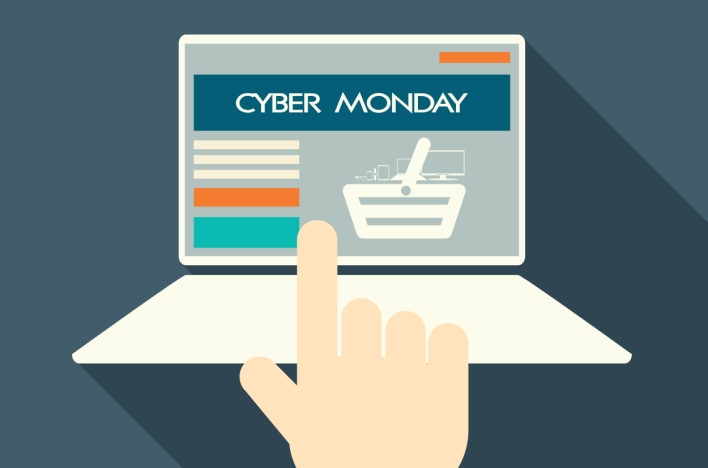According to comScore, 2013 Cyber Monday reached $1.735 billion in desktop online spending, up 18 percent versus a year ago, representing the heaviest online spending day in history and the second day this season (in addition to Black Friday’s $1.198 billion) to surpass $1 billion in sales.
On Dec. 1, there will be a bounty of tasty online deals consumed by online shoppers—many of whom will be purchasing items while on the corporate network. Every year PC and Macs turn into online shopping carts as cyber shoppers take advantage of special deals on toys, electronic gadgets, clothing, books appliances and just about every other thing you can think of.
However, for every joyful click of the mouse this Cyber Monday, there lurks a Digital Grinch, Bumble or Burgermeister Meisterburger—take your pick of holiday bad-guy analogies—seeking to ruin the online shopping experience.
Right now, employee email inboxes are stuffed like a Thanksgiving turkey with all sorts of offers—yes, they do get by corporate network email filters. Many will be legitimate. However, an ever-increasing number will be scams targeting identity and money.
According to Javelin Strategy & Research’s 2014 Identity Fraud Report, in 2013, 13.1 million consumers suffered identity fraud—the second highest level on record. Existing card fraud (ECF) became increasingly popular with criminals, contributing to the near-record number of identity fraud victims.
So how can corporations protect themselves from the Digital Grinch creeping through the open-port router and ruining an IT administrator or employee’s holiday season? Here is a list of five ways to protect the corporate network from hackers:
1. Fortify firewalls // Firewalls are only as good as the rules that you’ve built. Corporations must ensure that all firewall rules are up to date. It may sound simple, but many overlook firewall management.
2. Recent patches // Costly malware infections, business disruptions and data breaches stem from fundamental lapses in an organization’s vulnerability and patch-management processes. To avoid this, reduce malware exploitations when employees are susceptible to cleverly disguised holiday deal scams by keeping network patches up to date.
3. Update security software // There are many cleverly-designed holiday greetings, shopping offers and holiday videos to tempt employees to click. Keep the antivirus software up to date. To have the best chance of escaping Cyber Monday without any battle wounds, install updates for your Web browsers, email clients and operating systems.
4. Endpoint solutions // The premise is that simple endpoint solutions, while useful at controlling some malware threats, are not capable of fully defending those endpoints against modern attacks. Endpoints must be augmented with network malware detection, purpose-built solutions and constant log monitoring.
5. Watch the bandwidth // Let’s face it, your employees will be browsing for holiday deals online, and this strain will likely impact network bandwidth. Don’t lose sight of attackers who may strike while you’re focused on keeping your network up and running. Be prepared by monitoring network bandwidth and traffic, and take appropriate action by pinpointing users who are abusing privileges. Leveraging provider-based DDoS solutions helps to mitigate.
Don’t let the Digital Grinch ruin your holiday season. Don’t ignore the basic security procedures.

